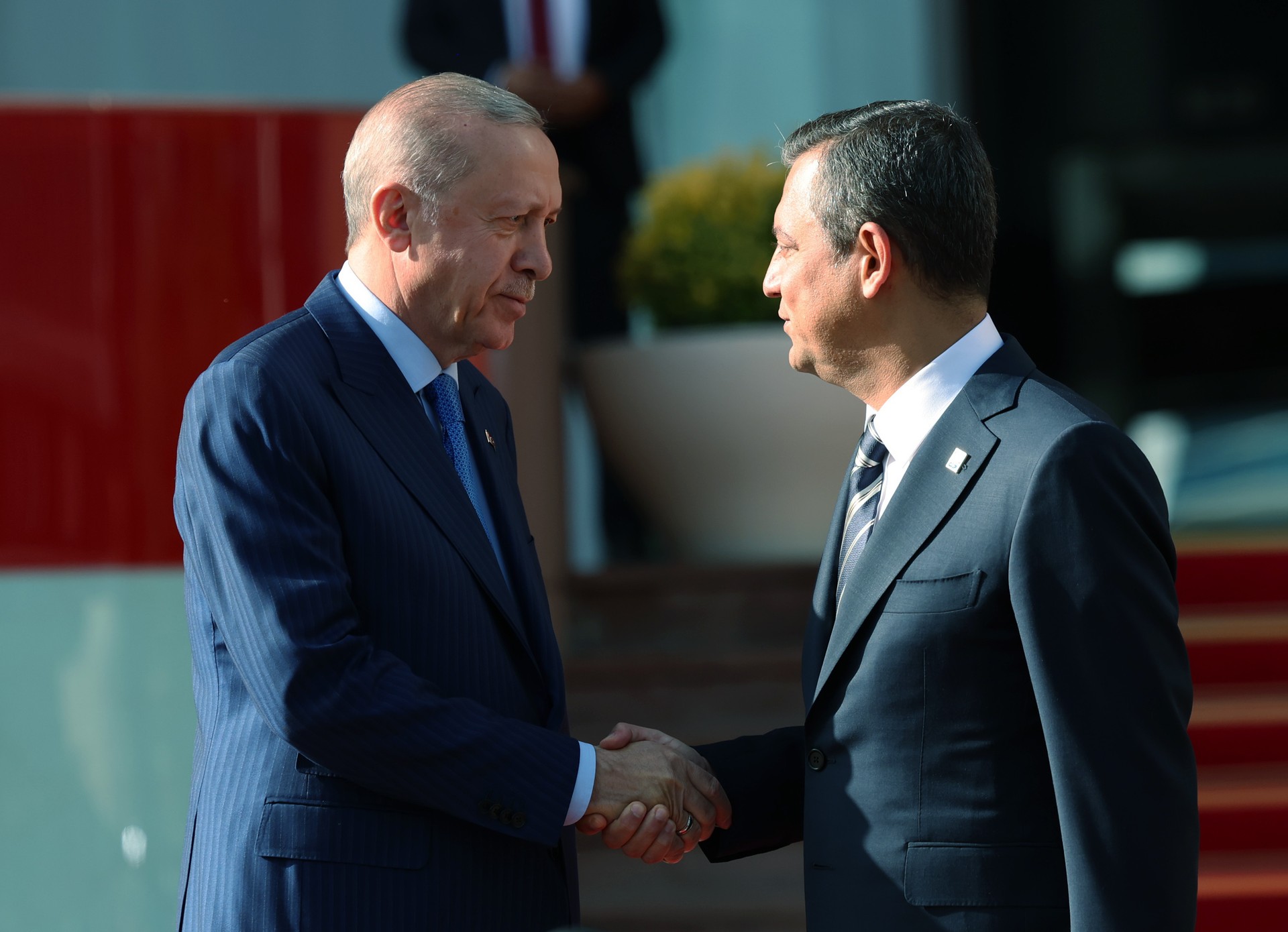
President Recep Tayyip Erdogan visited the headquarters of the main opposition party CHP for the first time in 18 years on Tuesday, meeting with CHP leader Ozgur Ozel in a gesture that could signal a shift towards political normalization and dialogue. This visit comes after Ozel's recent visit to the ruling AK Party headquarters, marking a potentially significant moment in Türkiye's politics.
Following the meeting, which lasted 1.5 hours, AK Party spokesperson Omer Celik addressed the press, emphasizing the importance of this reciprocal visit in Türkiye's political life. "Our President believes that this rare opportunity should not be wasted in everyday political skirmishes," Celik said, stressing that these engagements should lead to lasting gains.
During the discussion, Erdogan reiterated his views on the need for a new constitution. He advocated for a broad political consensus to replace Türkiye's current constitution, which was instituted following a military coup. Erdogan emphasized that any constitutional reform should embrace a wide societal consensus to serve as a comprehensive social contract for the nation.
Economic issues were also a key topic of discussion. Erdogan affirmed the government's commitment to the Medium-Term Program and the 12th Development Plan, emphasizing the need to avoid populist policies and maintain a realistic approach to economic challenges. He expressed willingness for Finance Minister Mehmet Simsek to engage with the CHP on these matters if desired.
Erdogan and Ozel also addressed various regional and international concerns. The rise of far-right movements in Europe and their implications for Islamophobia and anti-Türkiye sentiment were discussed, with Erdogan highlighting the necessity for political unity in the face of these challenges.
The ongoing threat posed by the PKK, particularly its Syrian branch, and the upcoming 50th anniversary of the Cyprus Peace Operation were also on the agenda, with Erdogan calling for a united stance against terrorism.
The conversation touched on domestic political matters, including the recent appointment of a government trustee to the Hakkari municipality, a move that has been contentious. Opposition leader Ozel addressed issues such as the conditions of lower-income citizens, political prisoners, and the status of various civic movements in future dialogues. Notably, the recent case of an appointment-seeking disabled teacher from Izmir was brought up, indicating Ozel's intent to present specific grievances to Erdogan.
The visit, the first of its kind since Erdogan's prime ministerial tenure, underscores a potential shift towards political detente following a period of heightened polarization. Preparations at the CHP headquarters were meticulous, with special attention to protocol and seating arrangements to avoid past controversies. This effort aims to maintain the focus on the substantive outcomes of the meeting rather than procedural disputes.
The initial meeting in May led to the release of some February 28 coup detainees and established pathways for shadow ministers from the CHP to consult with AKP cabinet members. These outcomes have been seen as positive steps in the normalization process.
Both parties acknowledge the delicate nature of this political shift. Erdogan's emphasis on constitutional reform and economic stability, coupled with Ozel's focus on social justice and civic freedoms, sets a multifaceted agenda for future engagements. However, skepticism remains within the CHP, with some members wary of Erdogan's intentions and the potential implications for the party's identity and support base.
As Türkiye navigates these complex political waters, the continuation and impact of this nascent dialogue will be closely watched by observers and constituents alike. The coming months will reveal whether this engagement heralds a new era of political cooperation or remains a fleeting moment of rapprochement.